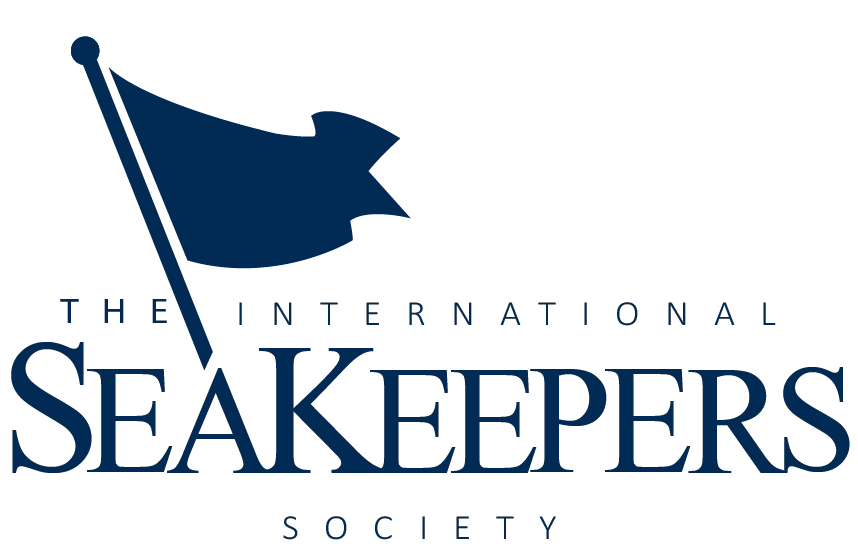FOR IMMEDIATE RELEASE
12.09.14
MEDIA ALERT/CALENDAR LISTING
Tiger Beach, Bahamas- November 9th to November 20th - The International SeaKeepers Society returns from a successful shark tagging expedition supporting the UM Rosenstiel School of Marine and Atmospheric Science, Marine Conservation Program and National Geographic. The shark tagging took place at Tiger Beach, Bahamas onboard DISCOVERY Yachts Fugitive, out of West Palm Beach, FL, and Qing, out of Fort Lauderdale, FL. Fugitive is a 125-foot Northcoast and Qing is a 150-foot Cheoy Lee.
Dr. Neil Hammerschlag and his research team, along with SeaKeepers staff, guests and crews of Qing and Fugitive, and National Geographic staff, tagged ten tiger sharks during the four days at Tiger Beach on a custom-made floating platform designed and built by Florida Biodiversity Institute. Of the ten sharks, three were male, providing valuable and exciting new data for what was thought to be an only female-populated area. Ultrasounds were conducted on the seven female sharks that were captured, and several were found to be pregnant. In addition to acoustic tagging and ultrasounds, researchers also attached several satellite tags, recorded morphological measurements, and took blood samples and fin clippings from the sharks, which will help scientists better understand the behavior and health of tiger sharks in The Bahamas.
Part of the expedition was also devoted to collecting and downloading acoustic receiver data from the Tiger Beach area. Researchers are able to track tagged sharks through hydrophone receivers that were mounted on the seafloor in October of 2013. Every six months, receiver data is downloaded. Since October, 20,000 detections by sharks on the hydrophones were recorded. These data give researchers insight to the behavior and habitat use of tiger sharks in the Bahamas, and how these patterns may be related to reproduction, diet and health as well as the potential impacts by tourism at Tiger Beach.
National Geographic Crittercams were attached to three tiger sharks during this expedition and several hours of footage were recovered. Crittercam is a research tool designed to be safely worn by animals, combining video and audio recording with collection of environmental data. Crittercams allow scientists to study animal behavior without interference by a human observer, and are designed to release from the animal after a set time.
The International SeaKeepers Society is working with the UM Rosenstiel School to coordinate expeditions to Tiger Beach every six months. By obtaining data regularly, researchers will continue to increase our knowledge about these important apex predators.
SeaKeepers’ DISCOVERY Yachts Program joins world-renowned scientists with world-class yacht owners to further scientific research. Yacht owners dedicate their yacht and its abilities to a scientist-led research expedition, in which owners and crew often participate. Previous expeditions include coral reef research in the Dry Tortugas, drifter deployments off the Channel Islands, genome-scale sequencing in Bimini, tiger shark tagging in the Bahamas, and harbor porpoise research in San Francisco.
About The International SeaKeepers Society®
The International SeaKeepers Society is a not-for-profit 501(c)(3) organization focusing on the health of the world’s oceans and climate. SeaKeepers works with the boating and yachting community to take advantage of their unique potential in order to further marine research and to raise awareness about the issues our oceans face. The International SeaKeepers Society acts as a global catalyst working with governments, scientists, industry, and other marine organizations to further its mission and to support sensible, achievable marine protection and restoration. For more information visit www.seakeepers.org
About the University of Miami’s Rosenstiel School
The University of Miami is one of the largest private research institutions in the southeastern United States. The University’s mission is to provide quality education, attract and retain outstanding students, support the faculty and their research, and build an endowment for University initiatives. Founded in the 1940’s, the Rosenstiel School of Marine & Atmospheric Science has grown into one of the world’s premier marine and atmospheric research institutions. Offering dynamic interdisciplinary academics, the Rosenstiel School is dedicated to helping communities to better understand the planet, participating in the establishment of environmental policies, and aiding in the improvement of society and quality of life. For more information, visit: www.rsmas.miami.edu.
Media Contact:
Molly Canfield
[email protected]
335 Alhambra Circle
Suite 1100
Coral Gables,
Florida
Tel: 434.851.0147

